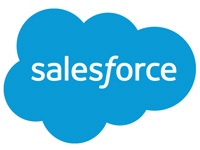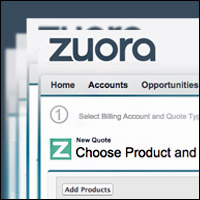There will be little New Year’s Eve celebrating but perhaps a lot of morning-after hangovers for U.S. businesses that haven’t begun preparing for ASC 606, the Financial Accounting Standards Board’s new rules about revenue recognition. They are set to go into effect on Jan. 1, 2018. The news is much the same for Europe, though there the rule’s name is “IFRS 15.”
The change is hard to do, according to a recent KPMG report, “The Deadline Is Approaching for Accounting Change.” Where have we heard this before?
It offers some hard numbers and equally hard facts. Among its findings:
- Even though the effective date for revenue recognition is just months away, 60 percent of public companies said they were facing challenges staying “on track,” and a similar percentage of private companies felt the same way.
- Only 6 percent of respondents believed they were faced with minimum impact requiring “little or no action” on their part.
- Total expected implementation costs had increased from the prior year for 57 percent of the public company respondents.
- Most respondents did not think the new rules would have a significant impact on their company’s tax issues.
- Internal communications needed to be improved; 33 percent said C-level executives had little or no involvement in the process.
The largest clusters of companies either were still in the assessment phase (39 percent) or in implementation (35 percent). Only 6 percent said their implementation was complete.
With so much foot dragging, it’s a reasonable bet that a healthy number of companies will miss the Jan. 1 implementation deadline. Then what?
Who Should Care
To put it all in perspective, many companies don’t have a revenue recognition issue, and 57 percent, according to the survey, said their organizations were not planning system changes for the new standard. This may be a good indicator of the percentage of companies throughout the economy that don’t rely on subscription business — at least, not yet.
However, it’s hard to see what companies are in this group. Even companies as old school as Caterpillar, the earth moving equipment maker, have undertaken significant initiatives to offer their products as services. So, a logical follow-up might be, why aren’t these companies more focused on the economic opportunity provided by subscriptions?
The answer might lie in the way subscriptions have been handled so far. With few standards for revenue recognition or definitions for how sales are booked and commissioned, it’s likely there are companies that offer some form of subscription services that don’t think the new rules apply to them.
Since the new rules also apply in the EU, though, and there are penalties for noncompliance, we might look for a sudden burst of activity in this area after the first of the year, as the laggards finally discover that the new rules really do apply to them.
To be fair, there really are companies for whom the new accounting standards really are a non-issue. Zuora, the subscription billing and financial management company trying to shepherd as many businesses as possible into the new standards, has developed a website that tracks many big-name companies that might have an issue with the new rules.
Indeed, some do — but it’s surprising the number of them that don’t foresee an impact on company cash flows, including Salesforce, Caterpillar, General Electric and many others.
Perhaps that’s because these companies are so big that they’ve had to deal with revenue recognition for a long time. Or perhaps they’re so rich that they’ve been tracking the issue and getting ready for it. The information is gleaned from public records of 10-Q filings, so it’s reliable.
Not Too Late
What’s a company to do if it doesn’t fall into any of these buckets? It’s not too late, and Tien Tzuo, CEO of Zuora, offered this advice: “Even if a company has not yet started their ASC 606 project, there are a few things they can do to get set up for reporting under the new standards immediately. First, get an accounting firm to do an assessment and determine the risk of impact on revenue. Then, identify the timeframe required to fully automate revenue recognition to reduce that risk.
If that’s not possible, a company will be forced to suffer with expensive, manual-intensive labor to report on time. Doing manual calculations will be error prone and can cause restatements later due to complexity of 606. If you’re stuck doing manual processing now, think about launching an automation project at the same time to collect data and analyze it for the first reporting cycle under 606. OK, it’s time for the other shoe to drop. All of the above is for the consumption of public companies. If you work in a privately held company, and especially if you’re one of those large pre-IPO outfits called “unicorns,” you’ve got an extra year to figure this out, and you ought to do it ASAP. The danger for the unicorns, according to Tzuo, is this:”Deloitte released a new survey of 3,000 companies indicating slow progress among private companies on implementation of the new revenue standard may delay IPOs. That’s a bad sign, especially when Fortune’s Data Sheet reported that the IPO window is now again open for tech companies following successes of Roku, CarGurus and MongoDB.”Imagine working for 10 years to build a company and bring it public, but then failing to do so at the optimal time. Come to think about it, don’t — it’s too depressing. Better to get to work on finding your optimal solution. It’s out there.



























































Social CRM
See all Social CRM